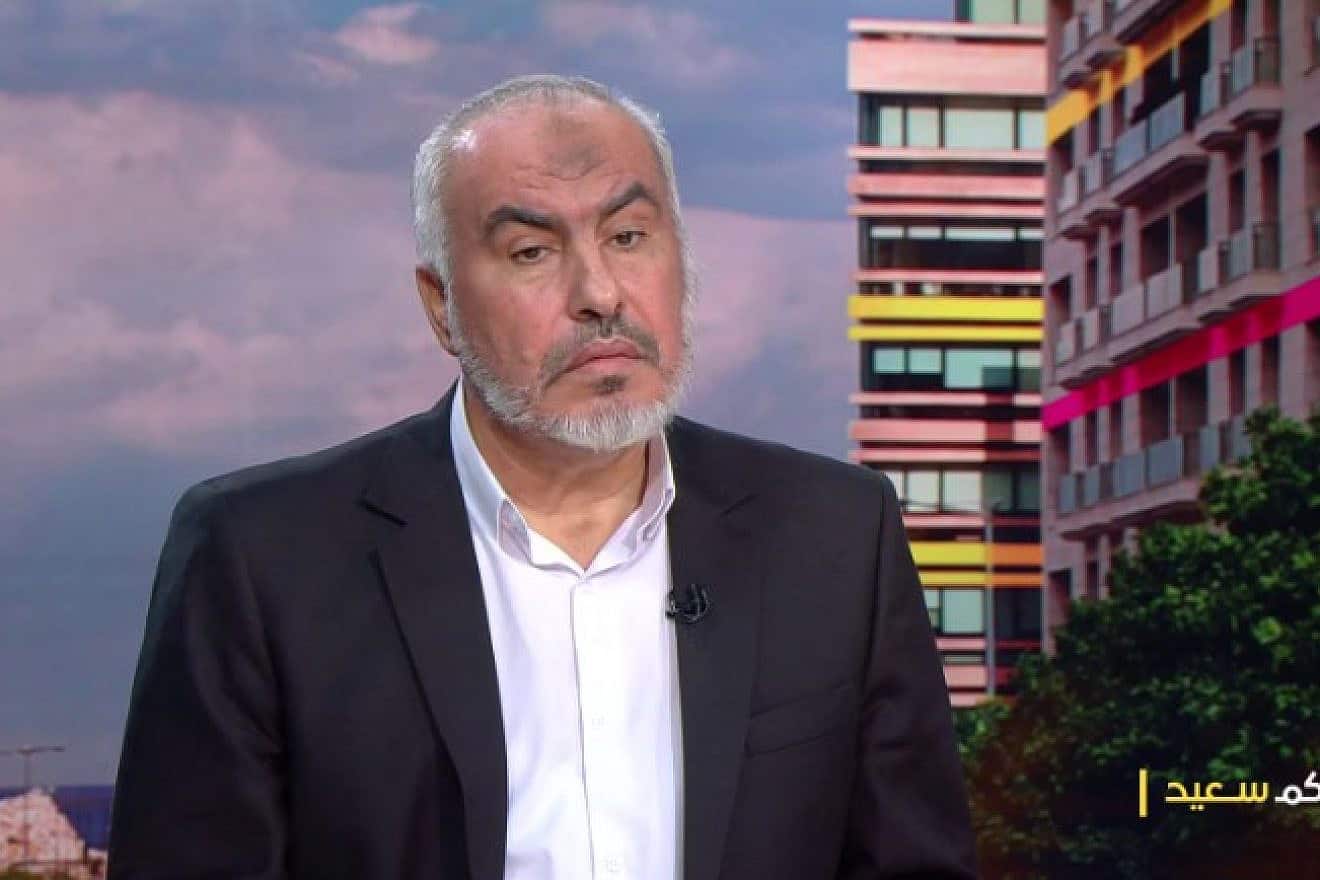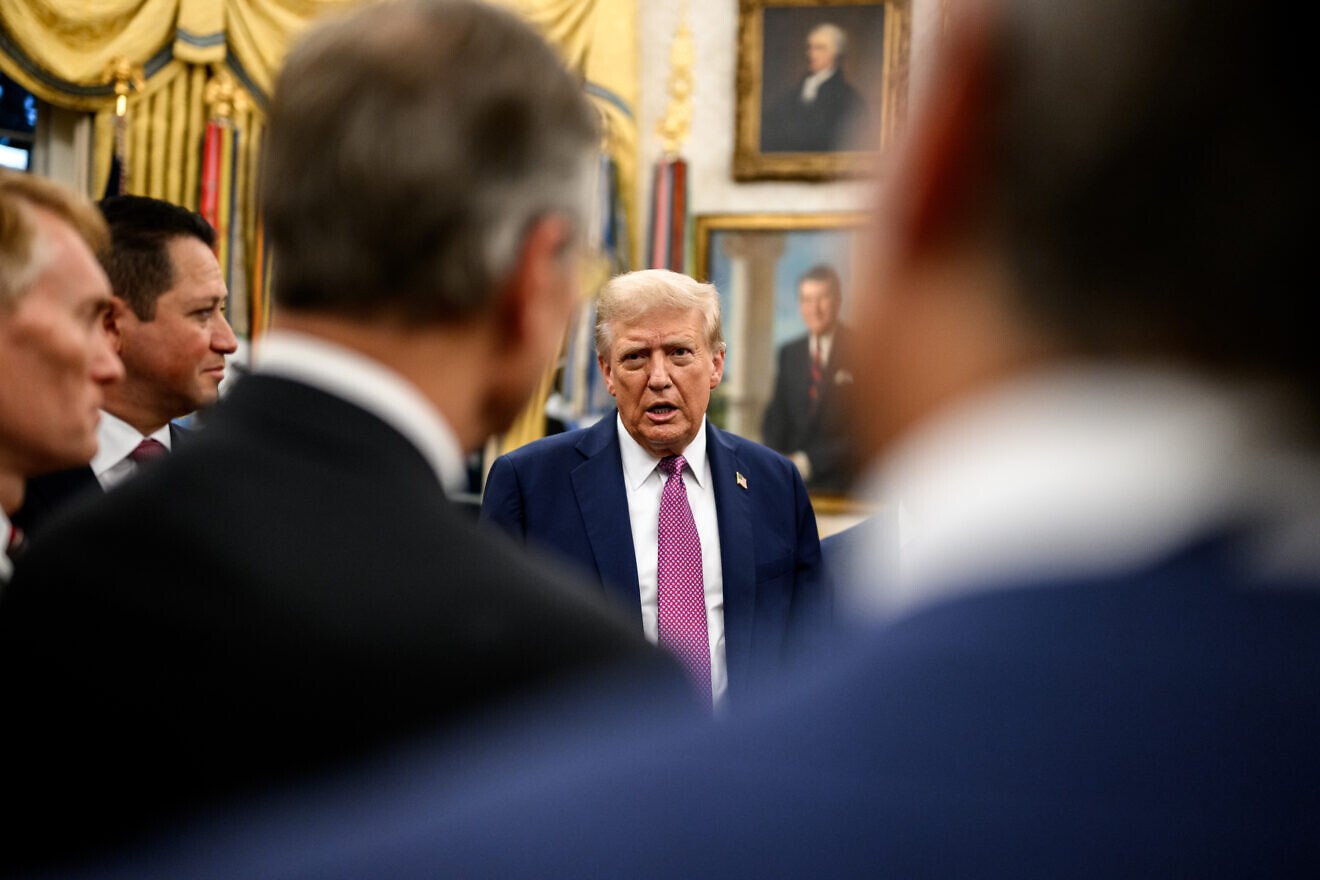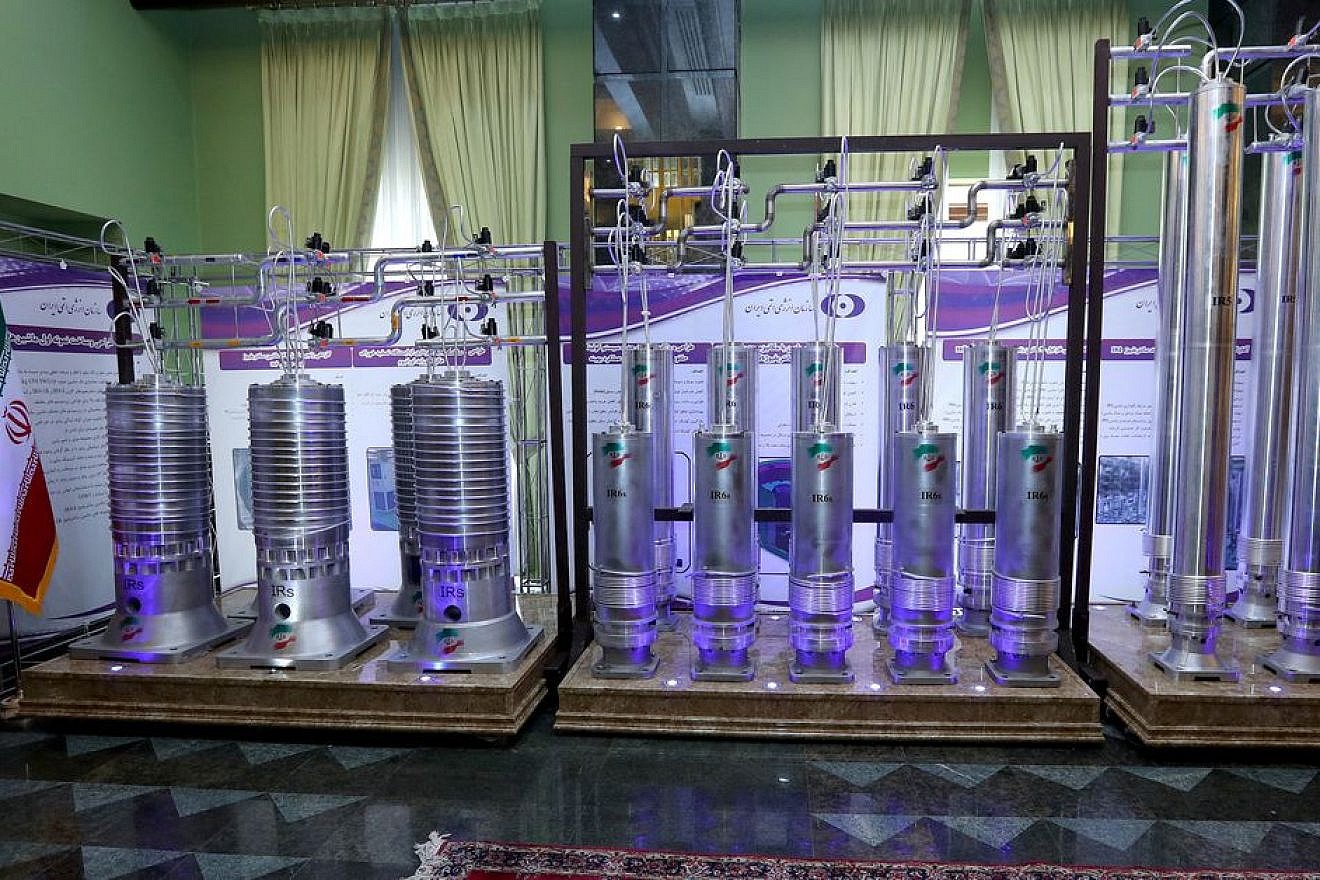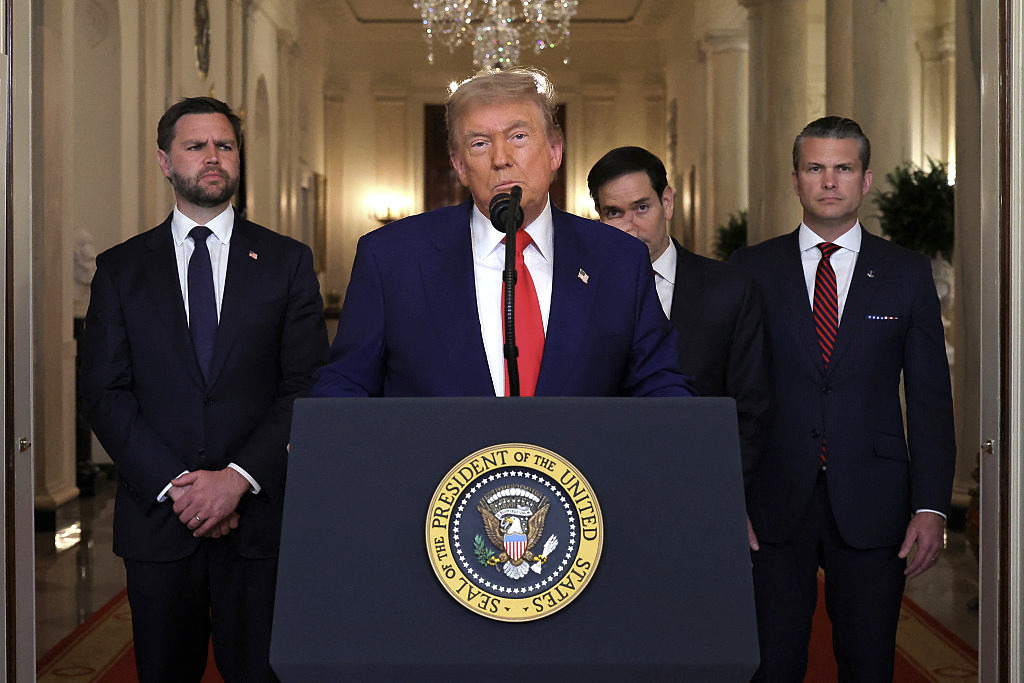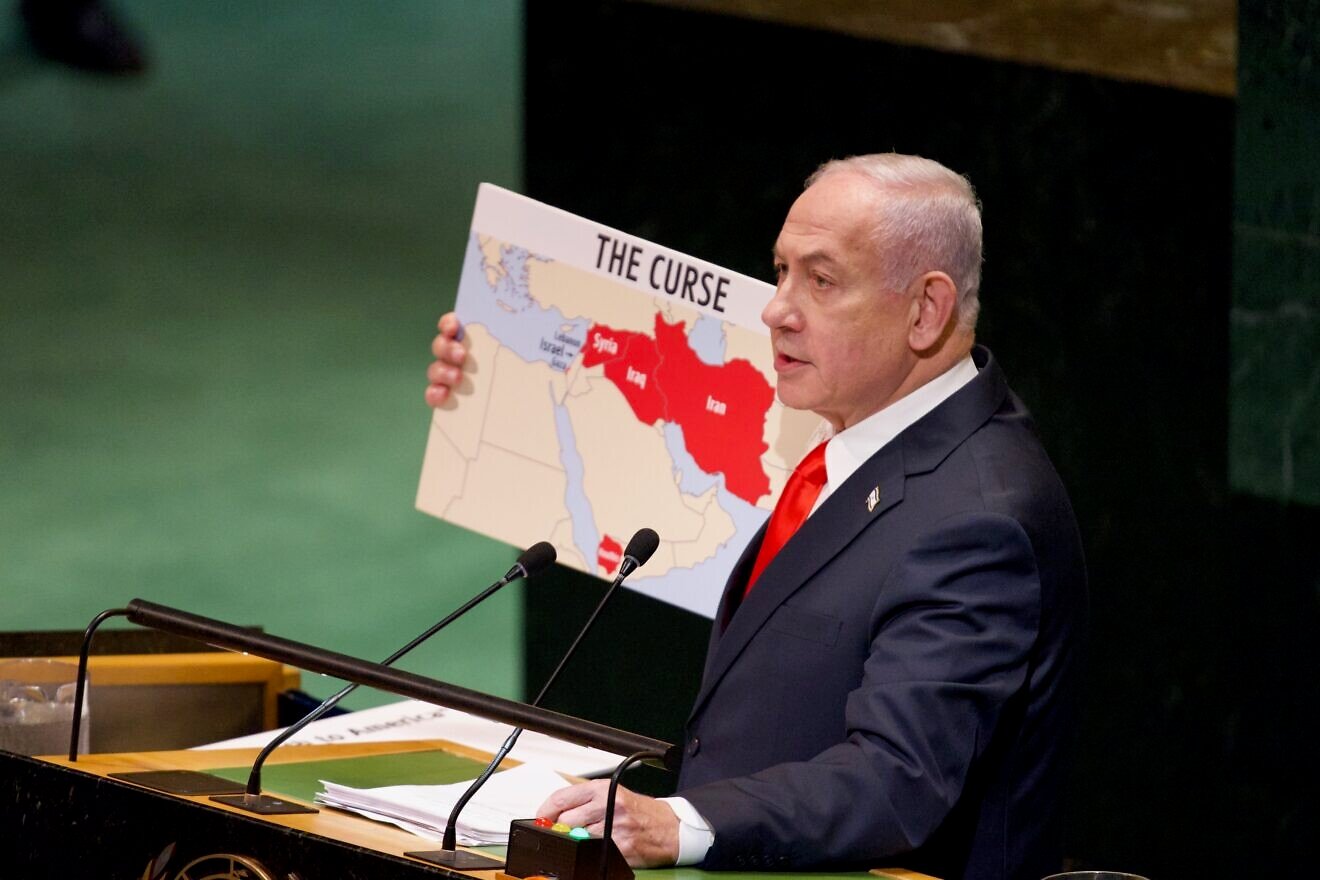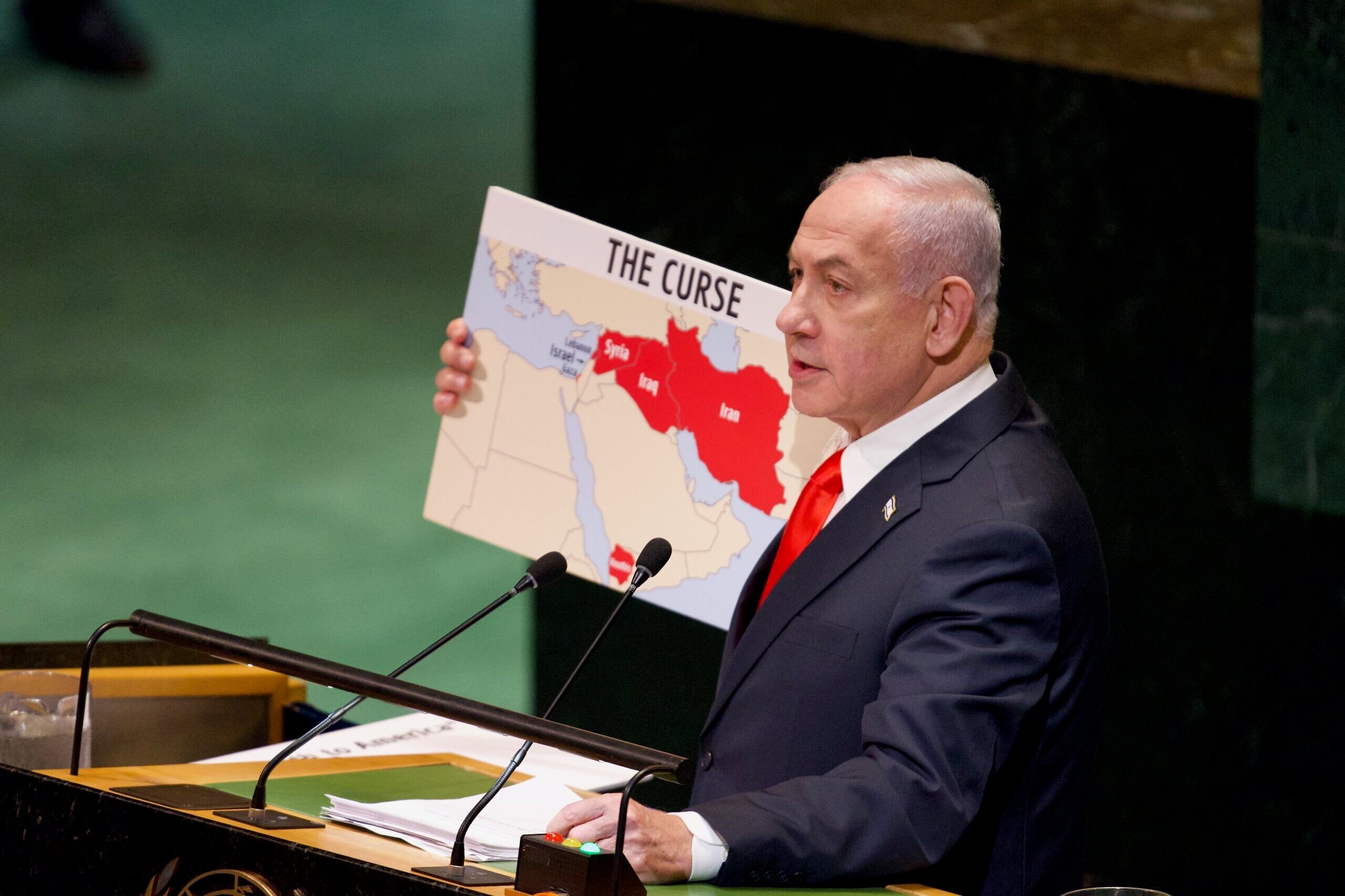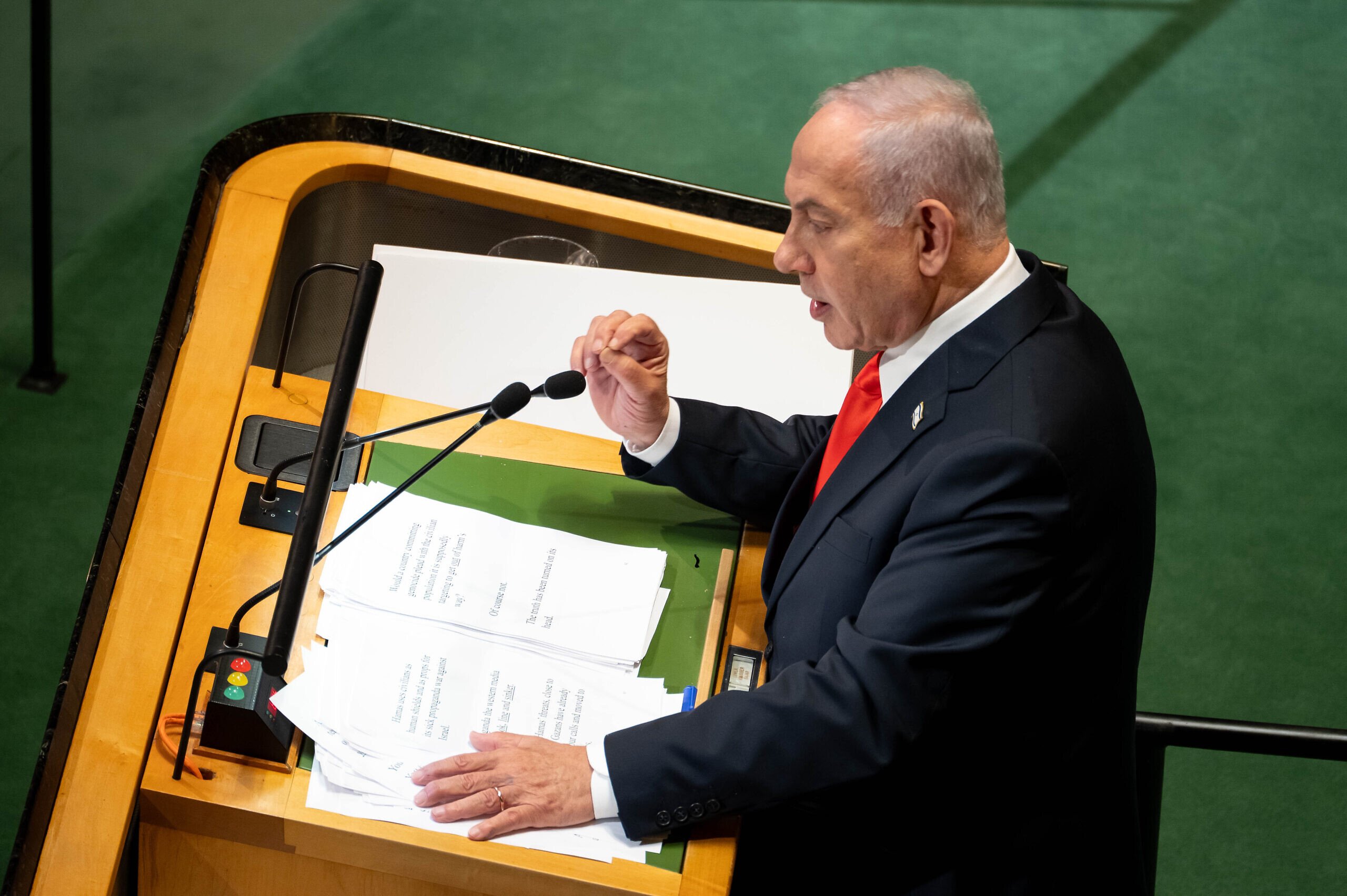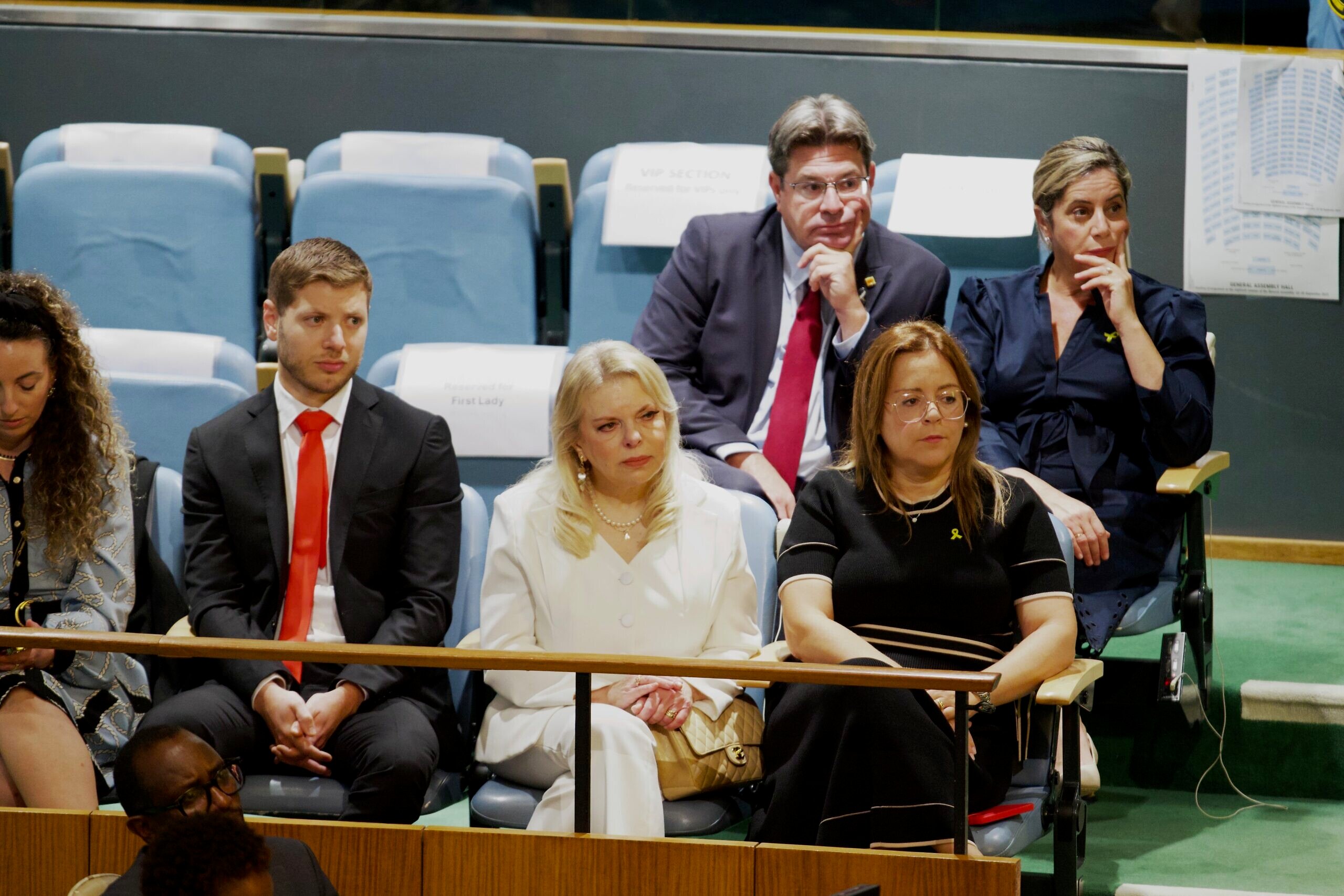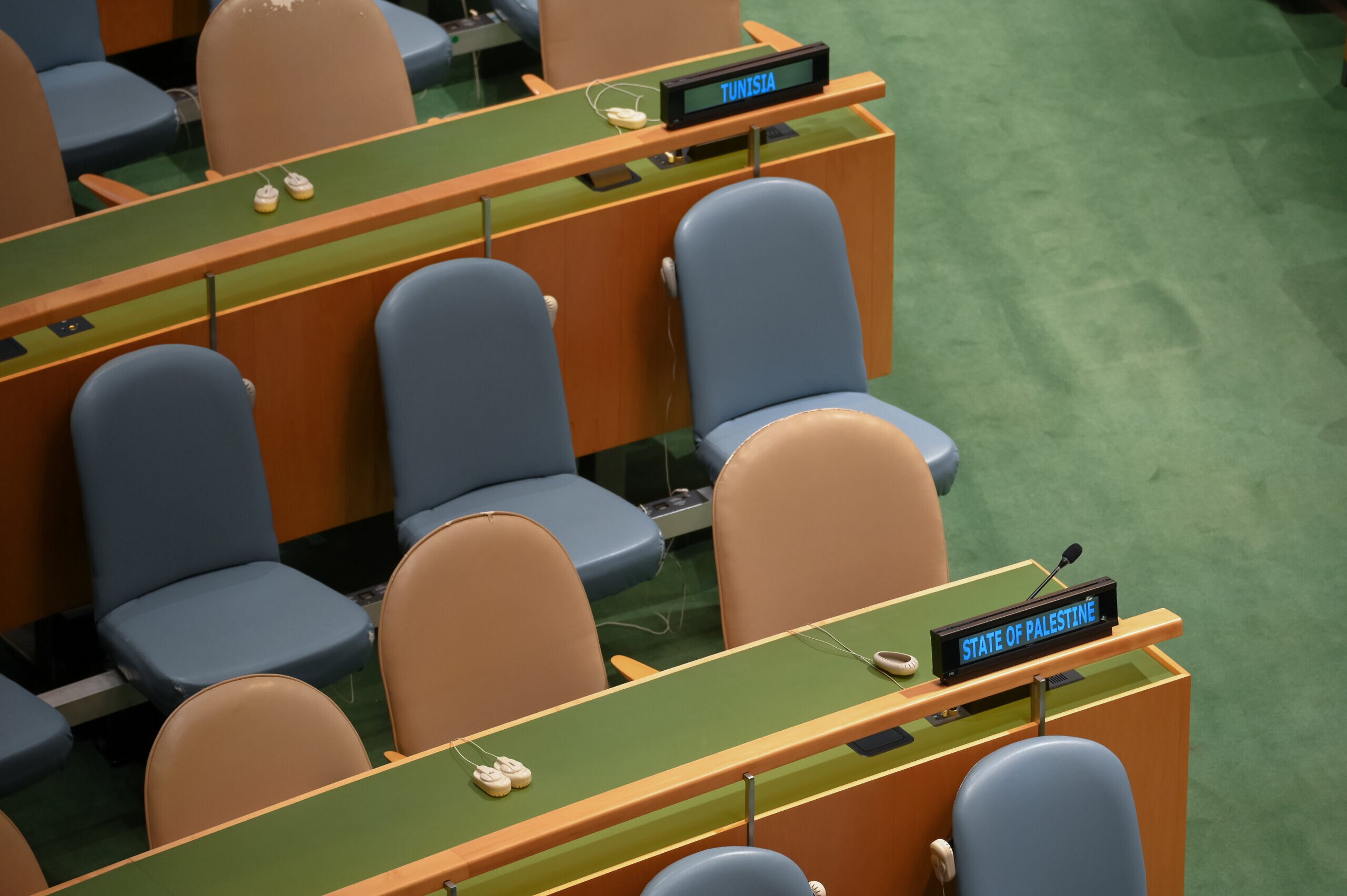by Bassam Tawil
Macron is overly optimistic, if not pathetically naïve, regarding the prospects of democracy in a future Palestinian state.
"[Palestinian President Mahmoud Abbas] has asserted his commitment to fighting hate speech and has promised a thorough overhaul of Palestinian governance." — French President Emmanuel Macron, speaking at the United Nations, September 22, 2025.
Abbas, unfortunately, has been promising sweeping government and security reforms ever since he assumed power in 2005. Palestinians have yet to see even the slightest change in anything.
[Abbas] had two entire decades to reform the PA, but did not seize the opportunity to end rampant corruption or make any changes in the PA that might be constructive for his people. Even the garbage disposal is toxic.
The results of these polls show that a majority of Palestinians do not share the French president's optimism regarding the implementation of government, security and economic reforms.
While Macron seems to have taken at face value Abbas's commitment to launch a "thorough overhaul" of the PA, most Palestinians, according to the polls, have not.
Macron is overly optimistic, if not pathetically naïve, regarding the prospects of democracy in a future Palestinian state.
Macron and other Western leaders, if they believe that the PA will change for the better, at least in the foreseeable future, are living in a fantasy world.... Even if a Palestinian state is created, it will be ruled either by Abbas's corrupt Fatah faction or Hamas.
In contrast to idealists and politicians such as Macron, the UK's Keir Starmer, Canada's Mark Carney and Australia's Anthony Albanese, who are evidently terrified of their Muslim voters, the Palestinians at least are realistic. They are only too aware that their leaders will keep on providing them with nothing but anguish and misery.
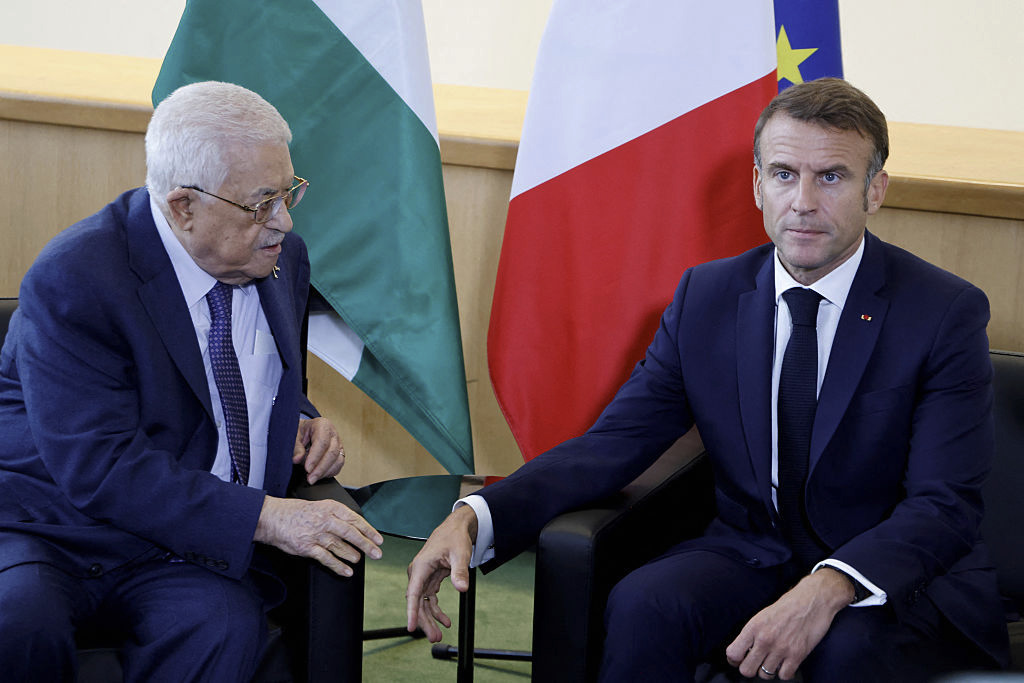
French President Emmanuel Macron, in his speech before the United Nations during the "High-level International Conference for the Peaceful Settlement of the Question of Palestine and the Implementation of the Two-State Solution" on September 22, justified his decision to recognize a Palestinian state by arguing that Palestinian Authority (PA) President Mahmoud Abbas had promised "a thorough overhaul of Palestinian governance."
Macron expressed hope that the new Palestinian state would protect "democratic expression":
"The State of Palestine will also have to give new hope to its population, worn down by years of violence and occupation but also division and negligence. It will therefore have to provide its people with a new and secure framework for democratic expression. President Mahmoud Abbas has made that commitment to [Saudi Arabia's Crown] Prince Mohammad bin Salman and to me. He has strongly condemned the [Hamas-led] terrorist attack of October 7, 2023. He has confirmed his support for the disarmament of Hamas and has committed to excluding it from the future governance of Gaza and the entire Palestinian territory. He has asserted his commitment to fighting hate speech and has promised a thorough overhaul of Palestinian governance."
Abbas, unfortunately, has been promising sweeping government and security reforms ever since he assumed power in 2005. Palestinians have yet to see even the slightest change in anything.
A public opinion poll published by the Palestinian Center for Policy and Survey Research in September 2023 showed that 87% of the Palestinians believe that there is corruption in the PA institutions. Another 78% of the Palestinians said, according to the poll, that they wanted Abbas to step down.
It is worth noting that Abbas, who was elected in January 2005, is in the 20th year of his four-year term in office. He had two entire decades to reform the PA, but did not seize the opportunity to end rampant corruption or make any changes in the PA that might be constructive for his people. Even the garbage disposal is toxic. Many towns and villages dump their garbage into nearby valleys or quarries (such as one called "Mt. Trashmore"), where it proceeds to pollute the entire water table and ecosystem (here, here, and here) – then try to blame Israel.
A poll published last year by the Palestinian Coalition for Integrity and Transparency found that the most widespread corruption crimes in PA institutions include nepotism, favoritism, embezzlement of public funds, abuse of power, bribery, and breach of trust. According to the poll, 87% of the Palestinians consider that efforts exerted by the PA leadership to combat corruption are insufficient. As for the future expectations regarding the level of the spread of corruption, 56% of the Palestinians said they believe that it will increase in 2025.
The results of these polls show that a majority of Palestinians do not share the French president's optimism regarding the implementation of government, security and economic reforms.
While Macron seems to have taken at face value Abbas's commitment to launch a "thorough overhaul" of the PA, most Palestinians, according to the polls, have not.
A poll published by the Palestinian Center for Policy and Survey Research last May showed that 81% of the Palestinians want Abbas to resign. Another 69% of the Palestinians said they believe that the new government, appointed by Abbas earlier this year, will not succeed in carrying out reforms that his previous government was unable to launch.
Macron is apparently unaware, or pretending to be, that the Palestinian Authority has had no functioning parliament for the past 18 years. The activities of the parliament, known as the Palestinian Legislative Council (PLC), were suspended after the Iran-backed Hamas terror group seized control of the Gaza Strip through a brutal, violent coup in 2007.
On December 22, 2018, Abbas decided to dissolve the PLC and called for holding long-overdue parliamentary elections. The last parliamentary elections were held in 2006. Needless to say, Abbas has since avoided holding presidential and parliamentary elections out of fear, justified, that Hamas would win. Abbas's decision to dissolve the parliament was strongly denounced by Palestinian political parties and human rights organizations, including the Palestinian Center for Human Rights (PCHR). The group said in a statement on March 21, 2019:
"PCHR believes that the decision to dissolve the PLC is part of the political bickering where the tools of law were used in a way that undermines the rule of law and the independence of the judiciary.... PCHR warns that the continuation of the status quo would affect the future of political and constitutional life in Palestine. The absence of the PLC has created a legal and administrative gap..."
In the absence of a Palestinian parliament, Abbas has been running the PA as if it were his private fiefdom. He continues to issue "presidential decrees" as a substitute for laws passed by the parliament.
In 2022, hundreds of Palestinian lawyers formally protested Abbas's authoritarian rule. Suheil Ashour, chairman of the Palestinian Bar Association, said that his group would stand firm against legislation delivered by "presidential decree" that curbed Palestinian rights and freedoms: "Our demand is either to stop their implementation now or to cancel" a raft of restrictive laws. Since then, Abbas nevertheless has -- in total disregard for the demands of Palestinian lawyers and human rights organizations -- continued to issue presidential decrees.
Macron is overly optimistic, if not pathetically naïve, regarding the prospects of democracy in a future Palestinian state. Since its establishment 30 years ago, the PA – both under Abbas and his predecessor Yasser Arafat – has been cracking down on political opponents or anyone who dares to speak out against Palestinian leaders. Countless journalists and human rights and political activists have been intimidated, arrested, beaten, or killed by PA security forces.
In 2021, PA security officers beat to death Nizar Banat, an outspoken critic of the PA. Just days before Macron's speech, PA security officers arrested Samir Hulileh, a prominent independent businessman from Ramallah, the de facto capital of the Palestinians. Hulileh was taken into custody shortly after he declared that he had received an offer from the White House to serve as "Governor of Gaza" the day after the Israel-Hamas war. The PA leadership did not like the idea that an independent Palestinian figure had discussed the future of the Gaza Strip with the Americans behind its back. A PA court ordered Hulileh held in detention for 15 days on suspicion of "fomenting sectarian strife" – a bizarre term, as the Palestinians do not have different sects. The arrest of the businessman was clearly meant to deter Palestinians from challenging Abbas's authoritarian rule.
Macron and other Western leaders, if they believe that the PA will change for the better, at least in the foreseeable future, are living in a fantasy world. It is beyond unrealistic to expect Abbas, who will soon celebrate his 90th birthday, to bring any changes to his regime. Even if a Palestinian state is created, it will be ruled either by Abbas's corrupt Fatah faction or Hamas.
So far, a third party is not ready or able to challenge either Fatah or Hamas. In contrast to idealists and politicians such as Macron, the UK's Keir Starmer, Canada's Mark Carney and Australia's Anthony Albanese, who are evidently terrified of their Muslim voters, the Palestinians at least are realistic. They are only too aware that their leaders will keep on providing them with nothing but anguish and misery.
Bassam Tawil is a Muslim Arab based in the Middle East. His work is made possible through the generous donation of a couple of donors who wished to remain anonymous. Gatestone is most grateful.
Source: https://www.gatestoneinstitute.org/21923/macron-clueless-palestinians
